Dr. Rachel Schechter was featured on the April 12th episode of Peter Hostrawser’s Disrupt Education podcast. This page houses teacher-friendly resources related to the topics mentioned during the discussion for those interested in learning more.
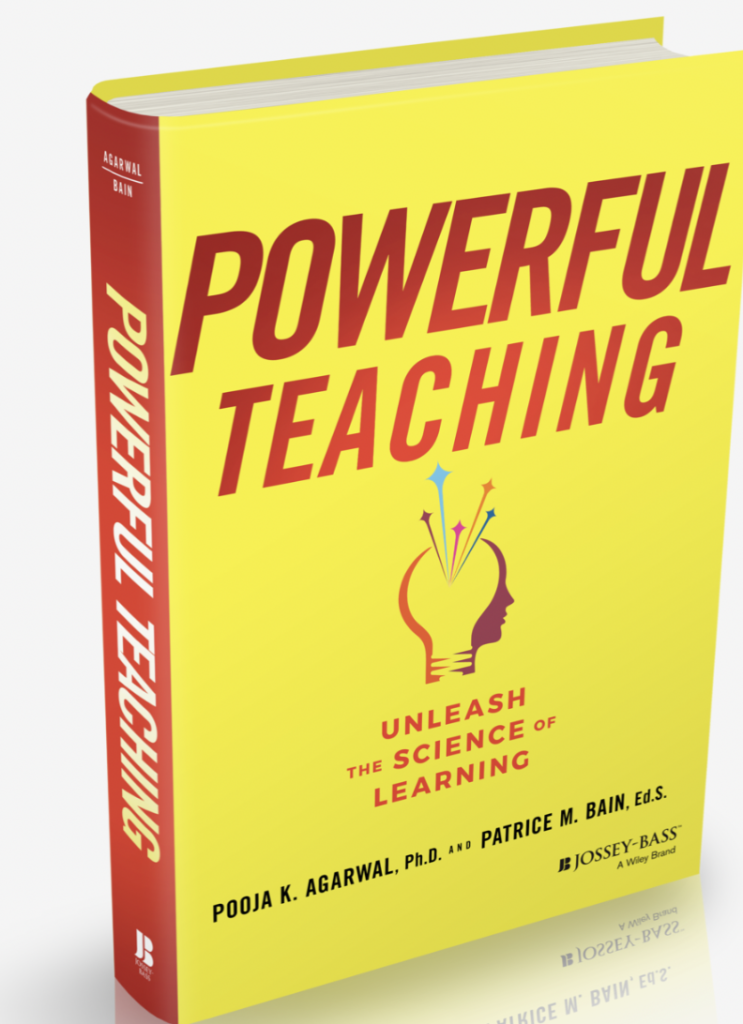
Retrieval practice is key to learning.
To learn more check out Powerful Teaching
Dr. Pooja Agarwal and Patrice Bain team up to share the research
and provide educators with concrete examples of retrieval practice.
Free resources are also available at https://www.retrievalpractice.org/.
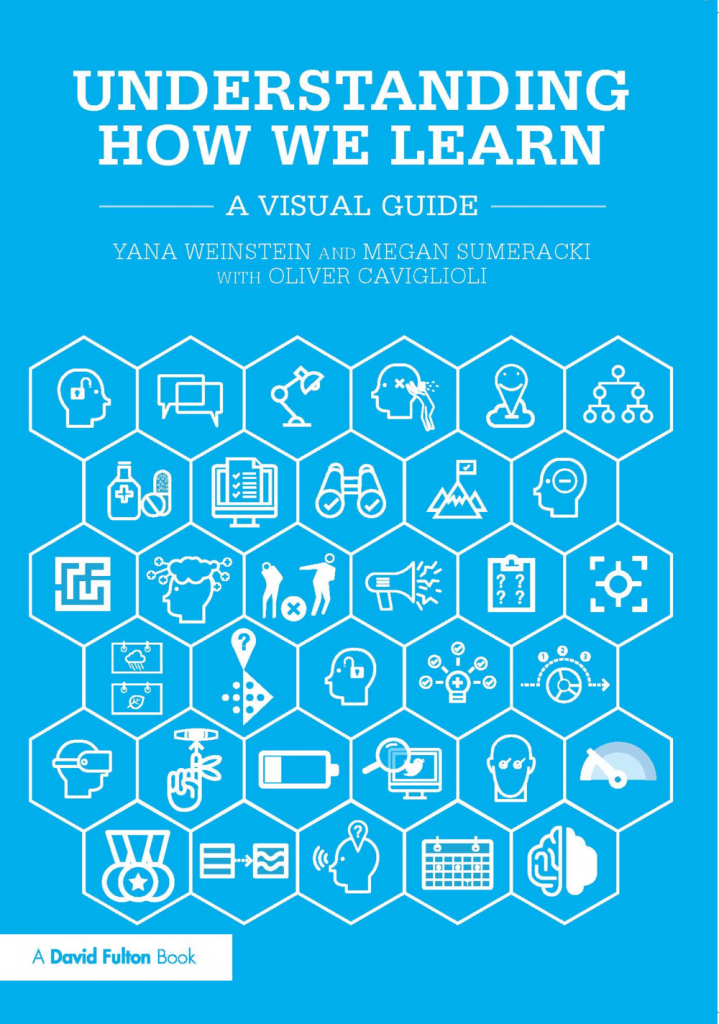
If we are not paying attention, we will not remember. What we remember is impacted by how we perceive it.
Learn the basics with Understanding How We Learn A visual guide where Drs. Weinstein and Sumeracki explain the basics of cognitive processes and strategies educators and learners can use for effective learning. Free resources are also available at https://www.learningscientists.org/
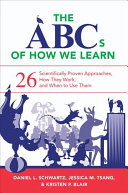
Learning is complex and takes the collective work of educators to review their practice through different lenses.
The ABCs of Who We Learn authors Dr. Schwartz, Tsang, and Blair present 26 different approaches for learning, how they work, and when to use them. Professional learning communities could focus on a chapter a month (or a chapter a year) to consider topics such as feedback, belonging, rewards, observations, and worked examples.
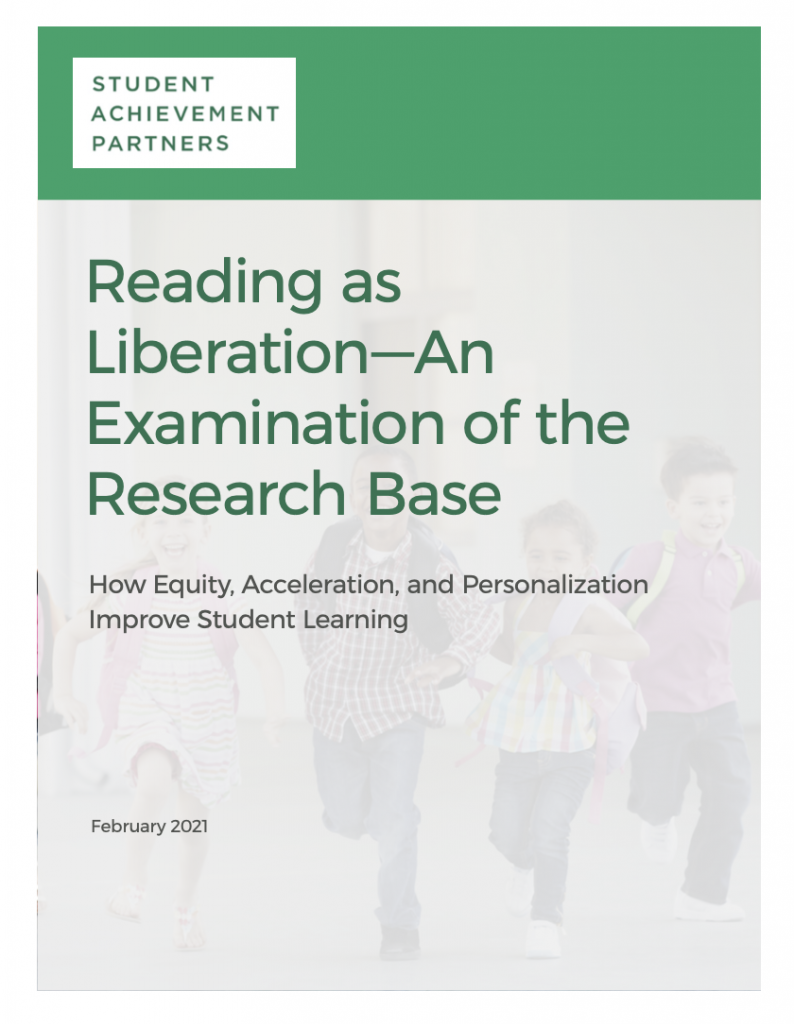
Equitable personalized learning needs to intentionally focus on acceleration, leveraging technology to inform decision-making and individual supports.
The report “Reading as Liberation – An Examination of the Research Base” identifies, explains, and makes recommendations for five literacy learning accelerators: securing solid foundational reading skills; expanding children’s vocabulary; growing children’s knowledge base of the familiar and broader world; marshaling and communicating evidence; and deepening understanding of what is read.
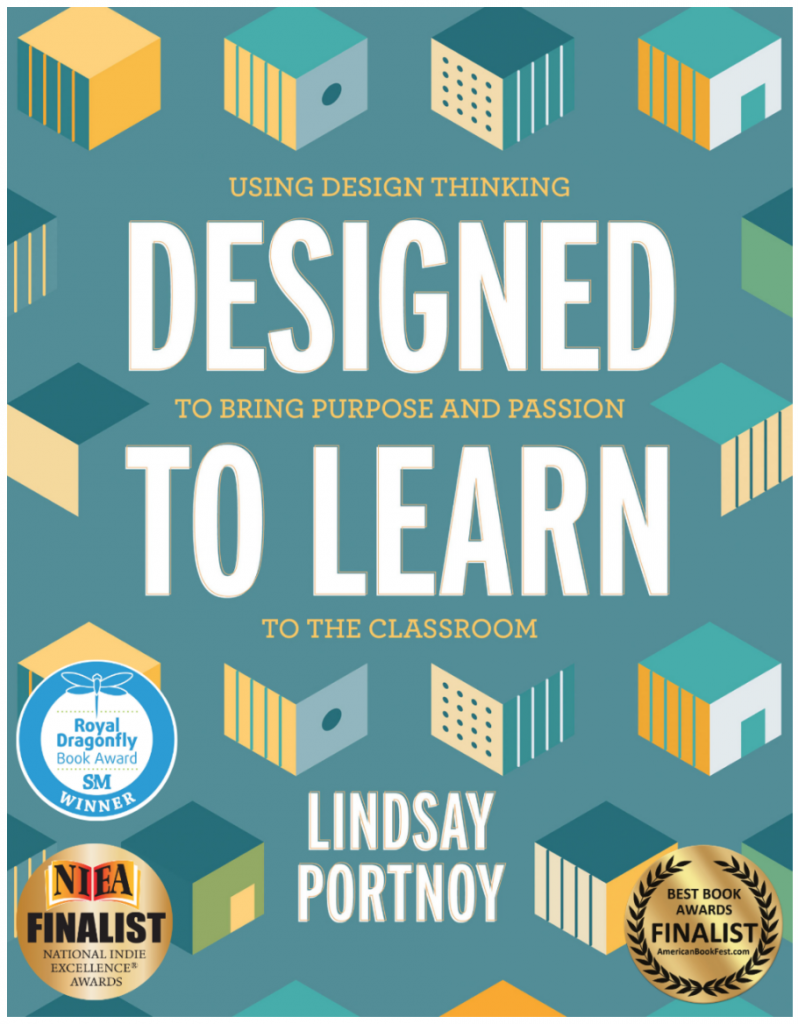
Teachers are researchers, so students are researchers.
In Designed to Learn, Dr. Lindsay Portnoy explains how to support students as they implement five elements of design thinking: understand and empathize, identify and research, communicate to ideate, prototype and test, and iterate and reflect.